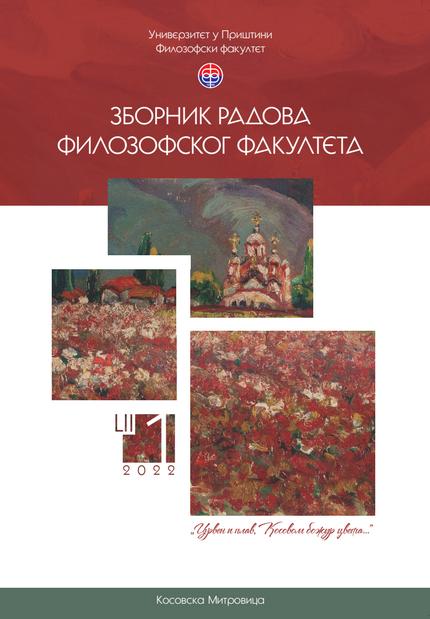Сарајевска политичка елита и завођење шестојануарског режима 1929. године
Political Elites in Sarajevo and the Introduction of the January 6 Dictatorship in 1929
Author(s): Draga V. MastilovićSubject(s): History, Recent History (1900 till today), Interwar Period (1920 - 1939)
Published by: Филозофски факултет, Универзитет у Приштини
Keywords: the January 6 dictatorship; Bosnia and Herzegovina; Sarajevo; political elites
Summary/Abstract: The introduction of the personal regime of King Alexander on January 6, 1929 caused different reactions among Serbian, Croatian, and Muslim political elites in Sarajevo, but there was no open resistance towards the regime. On the basis of available archival sources, it can be concluded that the introduction of the dictatorship in the region of Bosnia and Herzegovina, especially in the region of Sarajevo, was approved by the majority of population and a certain number of political and public workers, regardless of their religion, nationality or political orientation. On the other hand, the leading figure of Yugoslav Muslim Organisation, Mehmed Spaho, officially approved the new regime, but also unofficially used every single opportunity to express his dissatisfaction with it. But unlike him, Dr Juraj Šutej—ex-member of Parliament and member of Croatian Peasant Party, who was considered a leader of that party in Bosnia and Herzegovina—was openly sceptical towards а new political state in the country. At about the same time, he was actively leading secret political action in consultation with the party leadership in Zagreb. When it comes to Serbian political elites in Sarajevo, they honestly supported the new regime and some of them even actively took part in the new political system.
Journal: Зборник радова Филозофског факултета у Приштини
- Issue Year: 52/2022
- Issue No: 1
- Page Range: 193-210
- Page Count: 18
- Language: Serbian

